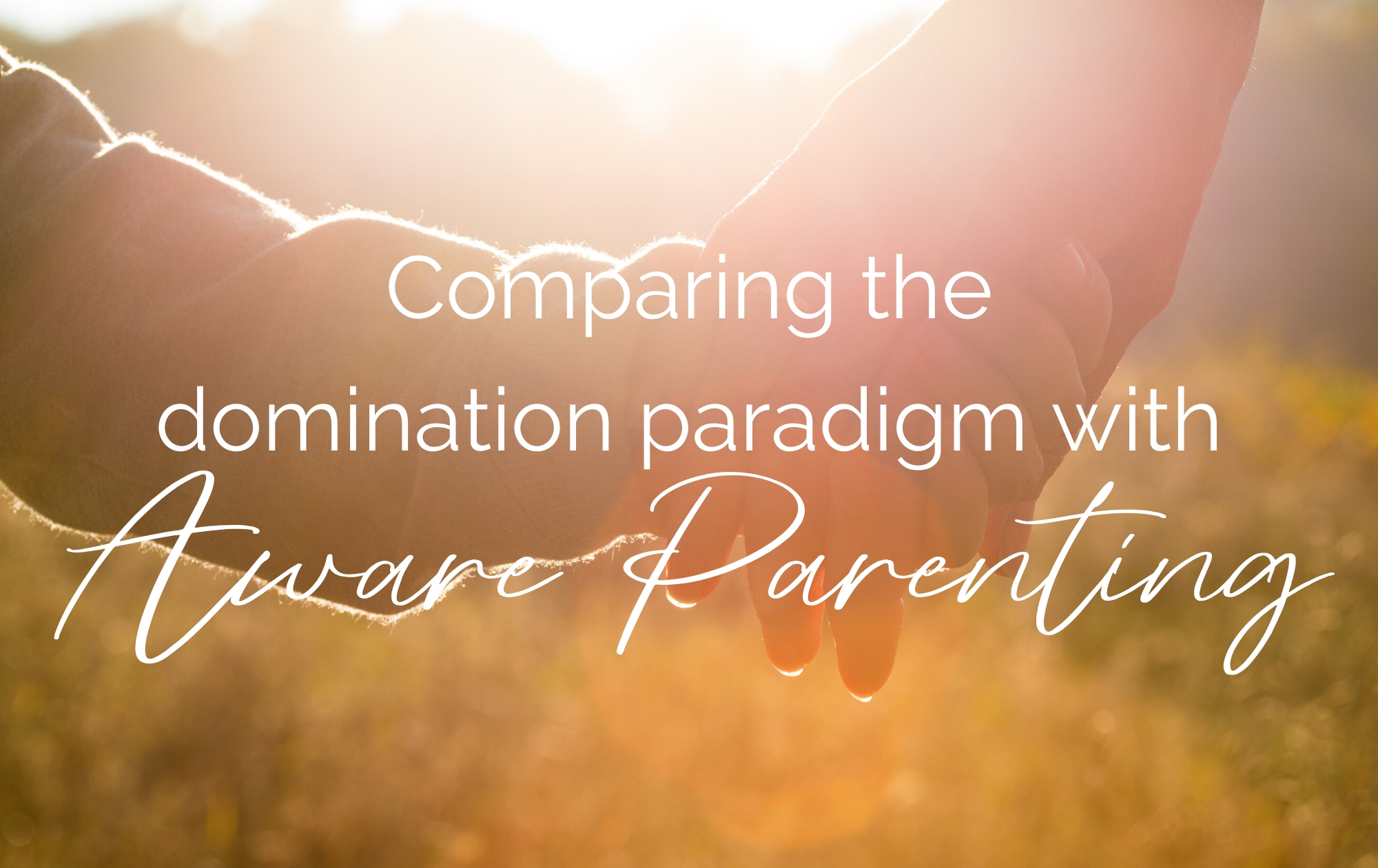Comparing the Domination / colonialised paradigm with Aware Parenting (and in particular, attachment play):
Aware Parenting is part of the new paradigm of human beings that is evolving away from the domination / colonialised paradigm of the last 2,000 plus years.
In the old paradigm, children and all humans were seen as innately ‘bad’ or ‘evil’ beings who needed to learn, through punishment, shame, harshness, disconnection and coercion, to become helpful (read: compliant) citizens.
One the last hundred years or so, parenting paradigms are evolving and becoming more compassionate.
Let’s look at the difference between old domination/colonialised parenting paradigms and Aware Parenting, by Aletha Solter. In particular, let’s look at attachment play, which is a cornerstone of Aware Parenting.
Let’s imagine a child who is doing something that an adult doesn’t want them to do, or who isn’t doing what the adult does want them to do.
The adult is wanting the child to stop doing something, or start doing something.
Here are the very different ways this is approached from the old domination paradigm and from Aware Parenting, using attachment play.
Domination paradigm: Harsh and judgmental thoughts about why the child is doing what they’re doing; “They’re doing it deliberately and need to learn that it is wrong.”
Attachment play: Compassionate thoughts about the cause of their behaviour, knowing that there are three key reasons for children behaving in ways that we don’t enjoy. “I know that there’s one of three reasons why they are doing this, and my job is to work that out so I can help them return to their natural desire to feel calm and be able to cooperate.”
Domination paradigm: The focus is on the behaviour and how that can be changed.
Attachment play: We’re thinking about the underlying cause of the behaviour and helping change happen at that root cause level.
Domination paradigm: Disconnecting from the child physically and emotionally.
Attachment play: We’re aiming to create more connection physically and emotionally, knowing that the painfulness of disconnection is a common reason for children behaving in ways we don’t enjoy.
Domination paradigm: Trying to make children learn through physical or emotional pain including shame, guilt and fear.
Attachment play: We’re helping children return to their true connected, cooperative, calm, caring natures where they feel relaxed and comfortable and at ease in their physical and emotional sensations.
Domination paradigm: Taking away what the child wants or needs to force them to behave in the way the adult wants.
Attachment play: We’re finding what the child needs and meeting those needs so that they can then willingly behave in enjoyable ways.
Domination paradigm: Becoming more serious and stern.
Attachment play: We are choosing to be more playful, knowing that play helps create connection, process experiences, and release fear, frustration and powerlessness which often underlies behaviours we don’t enjoy.
If yo’d like to learn more about attachment play, I am running an ATTACHMENT PLAY MASTERCLASS – Using play to elicit cooperation, create connection, prevent aggression and release repression.
In this masterclass, I will help you understand why children don’t cooperate, or are aggressive or repress their feelings, and I will show you particular forms of attachment play that not only help you feel more connected with your child, but also help elicit cooperation, prevent aggression and release repression.
It’s on Sunday 16th Feb 4pm Sydney time in the Attachment Play Course group.
Everyone already in the Attachment Play Course (more than 300 of you!) gets to have access to the Masterclass and the replay.
If you’d like to join the course, you can also get 11% off the course with the code FEB2020.
This is most suitable for parents of children aged 2-8.
If you’re reading this after that date, you can still access the masterclass within the Attachment Play Course!
